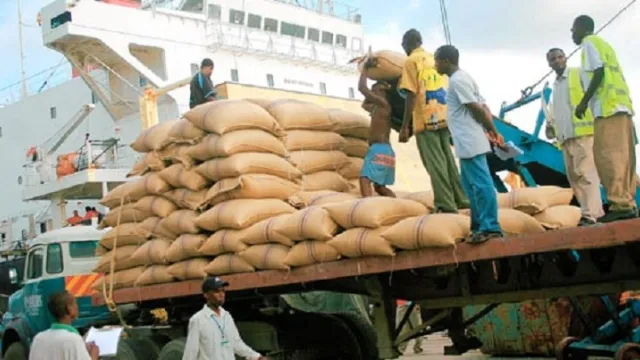Kenya inflation rate hits five-year high of 7.9 percent on sky-high fuel, food prices

Kenya inflation rate hits five-year high of 7.9 percent on sky-high fuel, food prices
Prices in Kenya climbed 7.9 percent in June from 7.1 percent in May, an acceleration in the inflation rate that was largely attributable to surging food and fuel costs.
Persistent increases in food and fuel prices leave the rate of inflation in breach of the government's ceiling of no more than 7.5 percent.
"Relative to May 2022 prices of wheat flour - white, carrots and cooking oil (salad) increased by 12.7, 4.7 and 4.7 percent in June 2022 respectively," the Kenya National Bureau of Statistics (KNBS) report said.
"During the same period, prices of onion-leaks and bulbs and potatoes (Irish) dropped by 5.3 percent and 4.8 percent respectvely."
With surging prices of food, fuel, and cooking oil, millions of consumers in Kenya are facing exceptional inflation hit from all sides.
The nation’s economics statistics agency said the average price of a litre of cooking oil hit Kes388 in May, a 51 percent increase from Kes255 in June 2021.
Further, a litre of Kerosene - a source of energy in poor households - is retailing at Kes128.9 currently compared to Kes98.8 in June 2021.
Kenya has waived duty on maize imports as the government moves to check the rising cost of staple commodities such as maize flour.
"The waiver is only for 540,000 metric tonnes (6 million bags) of white maize for the months of July and August before the next harvest," a note from the office of government spokesman released on Friday said.
Read also: Germany firms in Kenya bullish about trade prospects in the coming months
To cushion consumers on high pump prices, the government paid a total of Kes20.85 billion mid-June.
"A long-term solution is being sought to ensure self-sufficiency in Palm Oil production in western and coastal regions," the note added.
Early June, Pwani Oil, the manufacturer of Freshfri, Salit and Fry Mate cooking oils, temporarily shut down its plant citing shortage of raw materials which it blamed on difficulties accessing dollars to pay global suppliers on time.
“Getting sufficient amount of dollars required to support the factory in terms of getting sufficient raw materials is not happening. We are not even running the plant right now because of lack of raw materials [crude palm oil],” said Pwani Oil Commercial Director Rajul Malde.
In May, Central Bank Governor, Dr Patrick Njoroge said the risk of inflation on account of rising food prices could ease as the rain season kicks in.
At the moment, millers are importing a total of two million tonnes of wheat per month to plug local supply shortfalls. Some of the key source markets for the grain are US, Brazil, Argentina, Spain, Kazakhstan, Bulgaria, Hungary, Latvia, Poland, Czech Republic, Canada and Australia.



